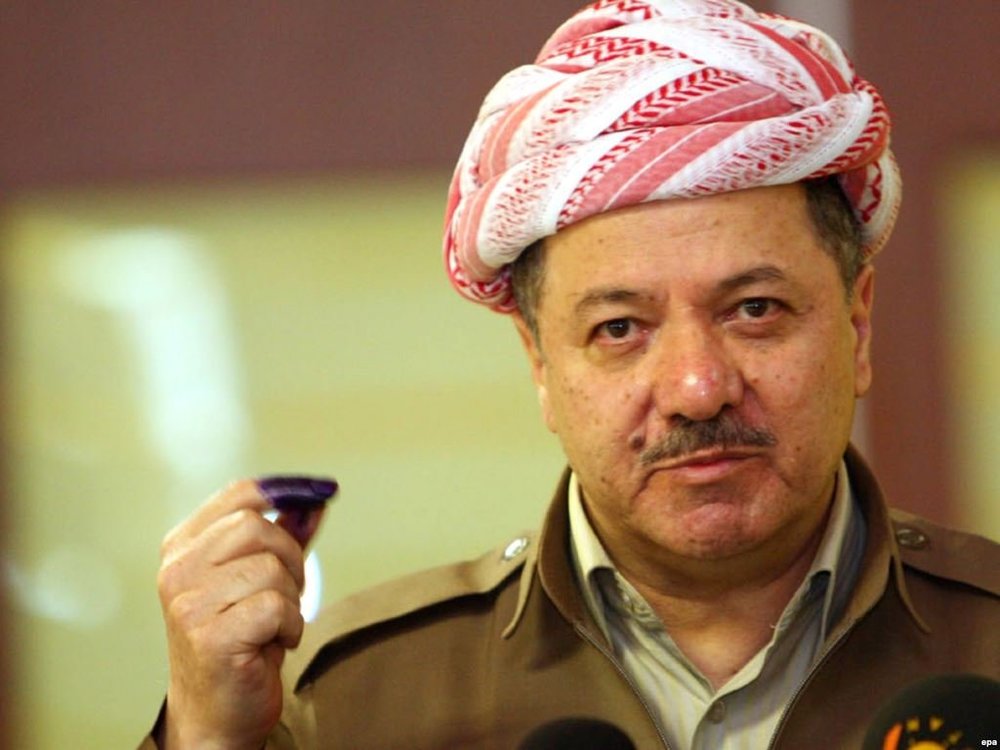Iraq's Kurds brush aside warnings on independence plebiscite

TEHRAN – The Kurdistan Regional Government reiterated its pledge to stage a planned referendum in September, warning that any effort to thwart it would result in “catastrophe” and “bloody war.”
“I do not know when this kind of thing may occur. However, the current situation is not sustainable between the central government and the regional government, Massoud Barzani, president of the Kurdistan region, told the France 24 television channel.
“We must do anything we can to avoid bloodshed and if war were to occur, it would be a deadly war.”
The 70-year old leader emphasized that there will be "no turning back" on the independence move.
Barzani, however, parried the question on whom the possible confrontation would be between, a reference to the kaleidoscopic scene in Iraq, where a mix of Kurdish Peshmerga, Shiite forces, Hashd al-Sha'abi fighters (popular mobilization forces), and the Iraqi army have been fighting Islamic State.
The Kurds already run their own autonomous region in northern Iraq.
The September vote, Kurdish officials have said, will be held in the region's three governorates as well as in areas that are disputed by the Kurdish and Iraqi governments, including Kirkuk.
Kirkuk lies in an oil-rich and ethnically mixed part of Iraq. Control over the city is contested by Kurdish and Iraqi authorities.
Kurdish forces took over the city in 2014 when the Iraqi army fled during ISIL's summer offensive in northern Iraq.
The U.S.-backed Kurdish Peshmerga forces played an important role in the U.S.-backed campaign to defeat Islamic State in Iraq and Syria.
With Kurdish forces controlling wider territory regained from Islamic State, the referendum plan adds to questions about Iraq's unity after the militants have been ousted from Mosul.
Back in April, the two main Kurdish parties, the Kurdistan Democratic Party (KDP) and the Patriotic Union of Kurdistan (PUK), agreed on the referendum plan, which Kurds would be likely to vote strongly for independence.
Baghdad has already rejected the referendum call.
President of the Kurdistan Regional Government says current situation is not sustainable between the central government and the regional government … We must do anything we can to avoid bloodshed and if war were to occur, it would be a deadly war.” “No party can, on its own, decide the fate of Iraq, in isolation from the other parties,” Saad al-Haddithi, Iraqi government spokesman, said earlier this month in a statement.
Reacting to the announced decision, Iraq's parliament rejected a decision to raise the Kurdistan flag alongside the Iraqi flag on public buildings and institutions in Kirkuk.
Iraqi MPs voted in favor of displaying only the Iraqi flag on Kirkuk's buildings.
The referendum bid “will give a strong mandate to the Kurdish leadership to engage in talks with Baghdad and the neighbors in order to get the best deal for Kurdish self-determination," Hoshyar Zebari, a former Iraqi foreign and finance minister said some time ago.
The quixotic dream of Iraqi Kurdish independence has been historically opposed by Iraq and also its neighbors, Iran, Turkey and Syria, as they fear the contagion for their own Kurdish populations.
In a meeting with Iraqi Prime Minister Haider al-Abadi in Tehran on Tuesday, Iran’s Leader Ayatollah Khamenei dismissed the independence plan as “unacceptable”
“As a neighbor, the Islamic Republic of Iran is against certain murmurs about the holding of a referendum for the separation of a section of Iraq,” he said.
The Leader also branded promoters of the agenda as “opponents of the independence and identity of Iraq."
Iran has its own Kurdish minority in the west of the country.
In a statement the Turkish foreign ministry said: “We think this will represent a terrible mistake”.
“The maintenance of Iraq’s territorial integrity and political unit is one of the fundamental principles of Turkey’s Iraq policy,” it added.
Kurds form close to 18 percent of Turkish population, nearly 78 million now.
The European Union and the U.S. have also come against the decision.
Last week, the Council of the European Union warned against “unilateral actions” in Iraq.
The Council voiced its “steadfast support for Iraq’s unity, sovereignty and territorial integrity” and its commitment to the preservation of Iraqi’s diverse society, following a meeting on Monday on Iraq, according to Kurdish news agency Rudaw.
Barzani told the France 24 that he had pushed back a request by U.S. President Donald Trump's administration to postpone the referendum.
AK/PA
Leave a Comment